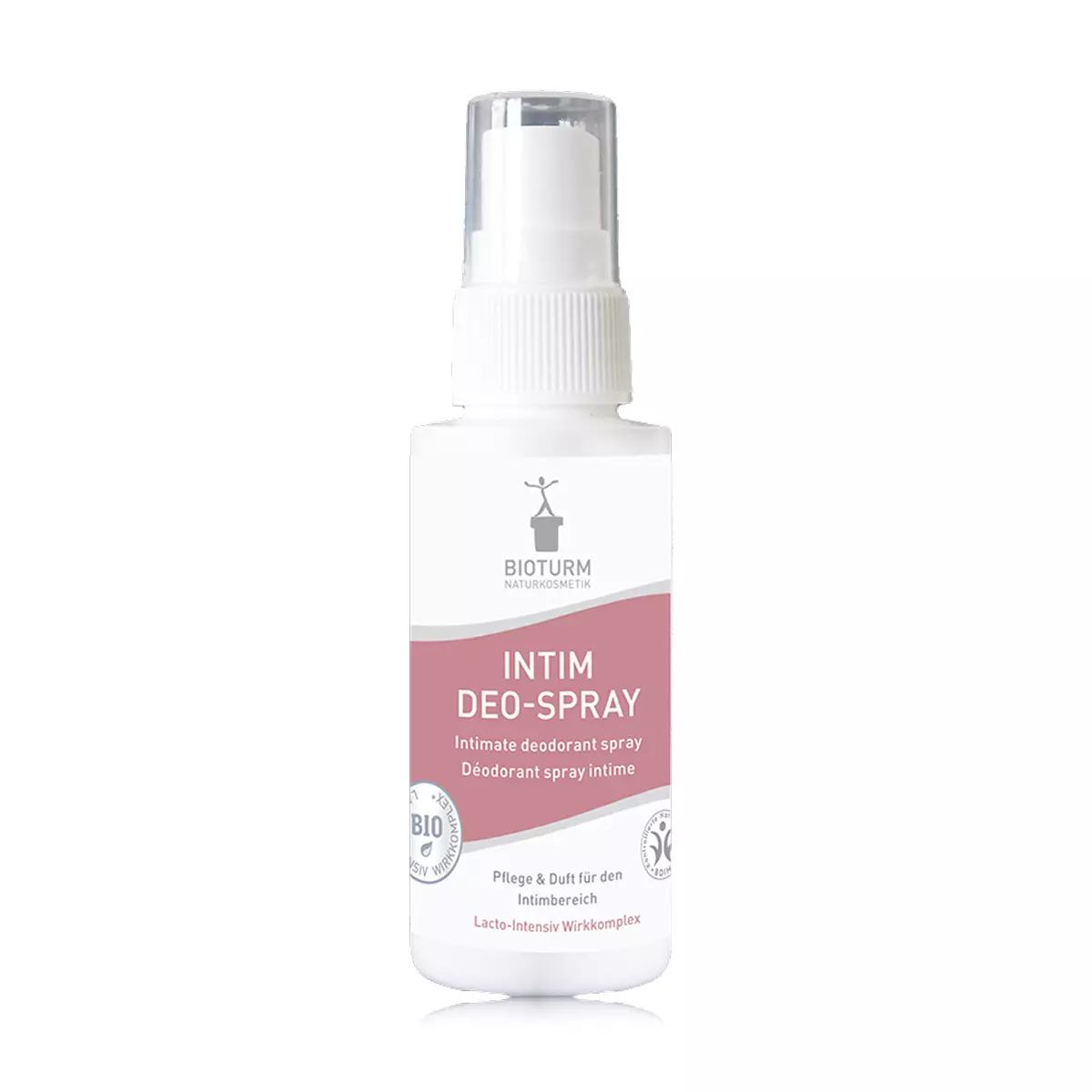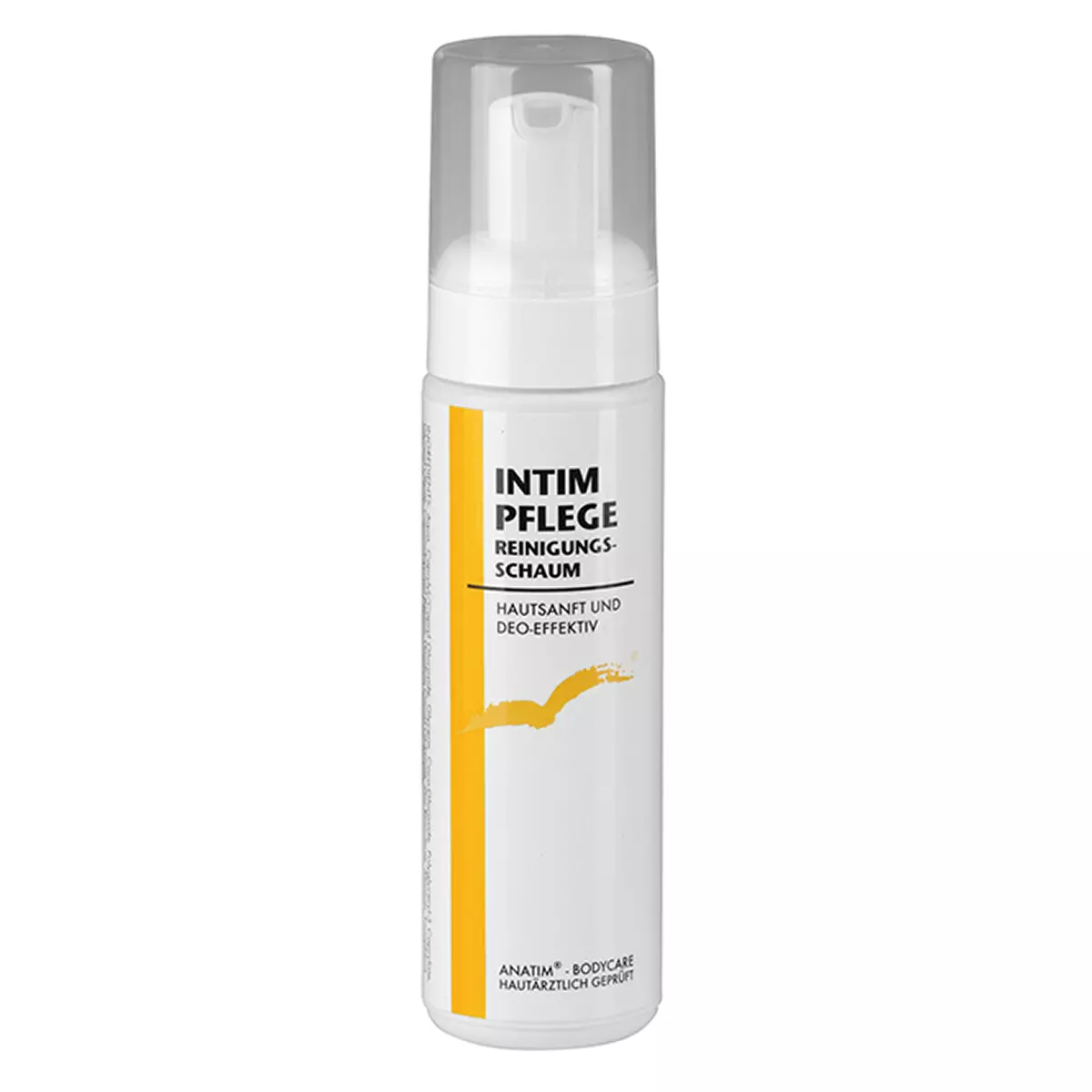Filter products

Content: 0.05 Liter (€185.00 / 1 Liter)

Content: 0.2 Liter (€49.50 / 1 Liter)
Intimate Care Balm for Proper Intimate Hygiene and Cleansing
Intimate hygiene is incredibly important, and women, in particular, place great emphasis on it. However, intimate care also carries potential risks, and women can inadvertently make significant mistakes. Yet, proper intimate care is actually quite simple; it helps prevent many common conditions and is an integral part of daily life and sexual health. Women often wash the intimate area too frequently, which can damage the vagina's natural protective layer. While the intimate area does need daily washing, and changing underwear daily is a given, when washing or showering, you should, of course, avoid unsuitable soaps or shower gels, as the intimate skin is particularly delicate. Therefore, use an intimate care balm and pay attention to your intimate cleansing routine. Act moderately, as disrupting the natural vaginal flora makes it easy for bacteria and fungi to thrive. Deodorants or sprays are unnecessary and often cause problems in the intimate area. Women are better off using an intimate care balm; it won't cause issues. Many women use intimate sprays to avoid odours, but these sprays often create an unpleasant smell rather than a fresh one.
Intimate Care for Women
Intimate Shaving
Nowadays, it's common practice to remove hair as part of intimate grooming. There's nothing wrong with this, and women often dedicate a lot of time to their intimate cleansing routine. However, intimate shaving, in particular, carries a significant risk for women: the skin can become irritated during shaving, and hair follicles can even become inflamed. The skin in the intimate area is sensitive, so you should ensure a thorough intimate cleanse and then apply an intimate care balm. Dry shaving is absolutely unsuitable for intimate care; it severely stresses the skin, causing terrible itching and burning. Many women will know this problem, but an intimate care balm can quickly provide relief. Hair removal creams are also not recommended for intimate care, as these creams can irritate women's skin and trigger allergies. Wet shaving is always a better option for intimate care for women; naturally, an intimate cleanse should precede the shave, and your razor must have a sharp blade. You should also always shave in the direction of hair growth. Afterwards, women should use an intimate care balm, which instantly soothes sensitive skin. This can help prevent ingrown hairs and bumps from forming.
The Anal Area: A Taboo Subject
As part of intimate hygiene, you must, of course, also cleanse the anal area, but intimate cleansing here should always be done very carefully. Unfortunately, the anal area is still often a taboo subject; itching and burning are usually silently endured, with few people seeking medical advice. Yet, fear or shame is completely unfounded, as conditions affecting the anal region are almost routine for doctors. However, for proper anal hygiene, it's important to understand a few things. The skin around the anus is particularly sensitive and, with a pH value of 5, is slightly acidic. You should not use standard soaps in this area; an intimate wash is perfectly suited here. After cleansing, women can also apply an intimate care balm, which further soothes the skin. Of course, anal hygiene is especially important; however, women should only use products designed for intimate cleansing in this area. This prevents harmful bacteria from entering the vagina or gluteal folds and causing infections there. Women dedicate a lot of time to intimate care, and rightly so. Because the anus and vagina are close together, bacteria can easily transfer to the vagina. This must be avoided in women. An intimate wash and intimate care balm are exactly what's needed. You should, of course, apply the intimate care balm after cleansing. After cleansing, use a soft towel for drying, but please do not rub, only gently pat dry. For proper intimate hygiene, you must, of course, change your towel daily. Furthermore, you should use very soft toilet paper; for intimate care, this is almost essential. There are products on the market that contain bleaches, fragrances, and dyes, which can irritate the skin. This should be avoided in intimate care. This can also be the case with wet wipes; it's better not to use them. When it comes to intimate hygiene, women should always ensure they wipe from front to back, otherwise bacteria could enter the vagina.
Excessive Intimate Care in Women
Many women overdo intimate hygiene, which can completely destroy the vaginal flora. Therefore, opt for an intimate wash that is completely safe and always apply an intimate care balm. Too much hygiene can be quite harmful for you in intimate care, yet body culture is unfortunately increasing. Many people are simply afraid of unpleasant odours and constantly feel insecure. So, the intimate area is washed relentlessly, but precisely this type of intimate care is harmful to women. Although vaginal infections are less common today, these infections are usually attributable to excessive intimate hygiene. The acidic environment of the vagina has a pH value of 4 to 4.5, and this value must under no circumstances be destroyed. Therefore, an intimate cleansing routine should always be gentle, and after cleansing, you should apply an intimate care balm.
Intimate Cleansing Can Also Backfire
Women often use the wrong products for intimate care, as some shower gels have a pH value of 9 to 11, which is significantly too alkaline for the sensitive intimate area. It's better to use an intimate wash that doesn't damage the skin's acid mantle. Especially in the intimate zone, extremely unpleasant odours can develop, and bacteria, of course, have free rein. Particularly sexually active women often struggle with discharge that also smells very unpleasant and looks 'odd'. At this point, it's time to see a gynaecologist. However, you can, of course, still apply an intimate care balm. If you want to avoid a doctor's visit, use an intimate wash that doesn't harm the skin, and after cleansing, you should soothe the skin with an intimate care balm. Often, when it comes to intimate care for women, less is more; too frequent washing with aggressive soaps can have the opposite effect. You should also not use intimate sprays after intimate care, and vaginal douches or sitz baths are strongly discouraged. External intimate cleansing is entirely sufficient, even during menstruation. If you wash or shower the intimate area once a day, your hygiene needs are sufficiently met. After showering, you should always apply an intimate care balm.
How to Cleanse the Intimate Area Correctly
When it comes to intimate hygiene, women should, of course, not always use the same washcloth and towel; these textiles must be changed daily. To ensure no bacteria from the anus stray into the vagina, you should always wipe from front to back during intimate care. Some women are inherently prone to fungal infections; they must ensure that only unscented washes are used, they should pay particular attention to their intimate cleansing routine, and perhaps apply an intimate care balm immediately after washing. Some aspects of intimate hygiene should always be discussed with a gynaecologist, as itching or burning in the intimate area can also indicate an underlying condition. However, an intimate care balm can't hurt.
Some Underwear Choices Aren't Necessarily Healthy
Thongs are certainly sexy, but they're not always healthy. However, synthetic fabrics promote sweating, which in turn creates an ideal breeding ground for fungi. Women are better off wearing breathable underwear that shouldn't be too tight. If you don't want to completely give up thongs, that's fine, but you shouldn't wear them daily. Panty liners are also part of intimate hygiene for women; here too, you should opt for high-quality liners. When washing, you should use a suitable detergent, because proper intimate care for women only makes sense if no alkaline residues are found in the underwear after washing. By the way, cotton briefs can also look very sexy.


